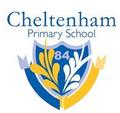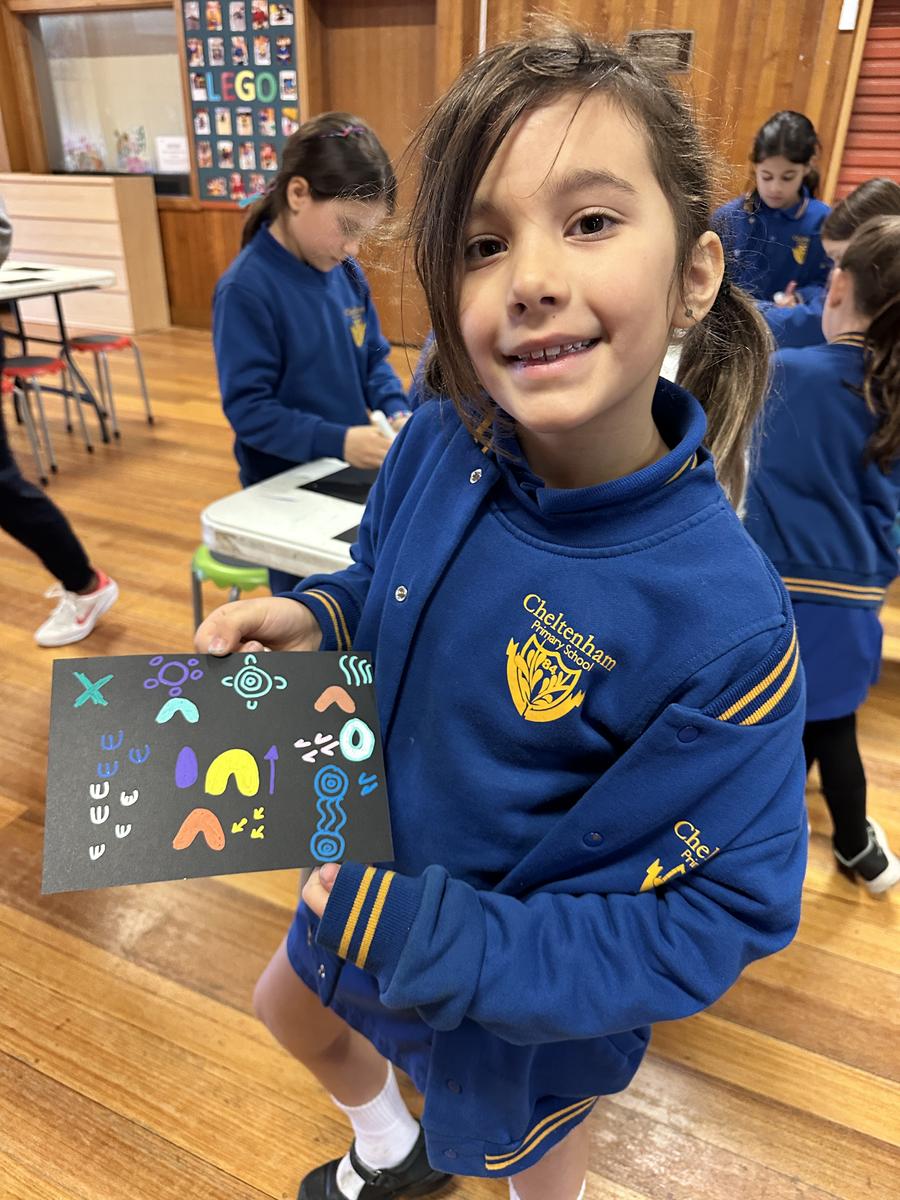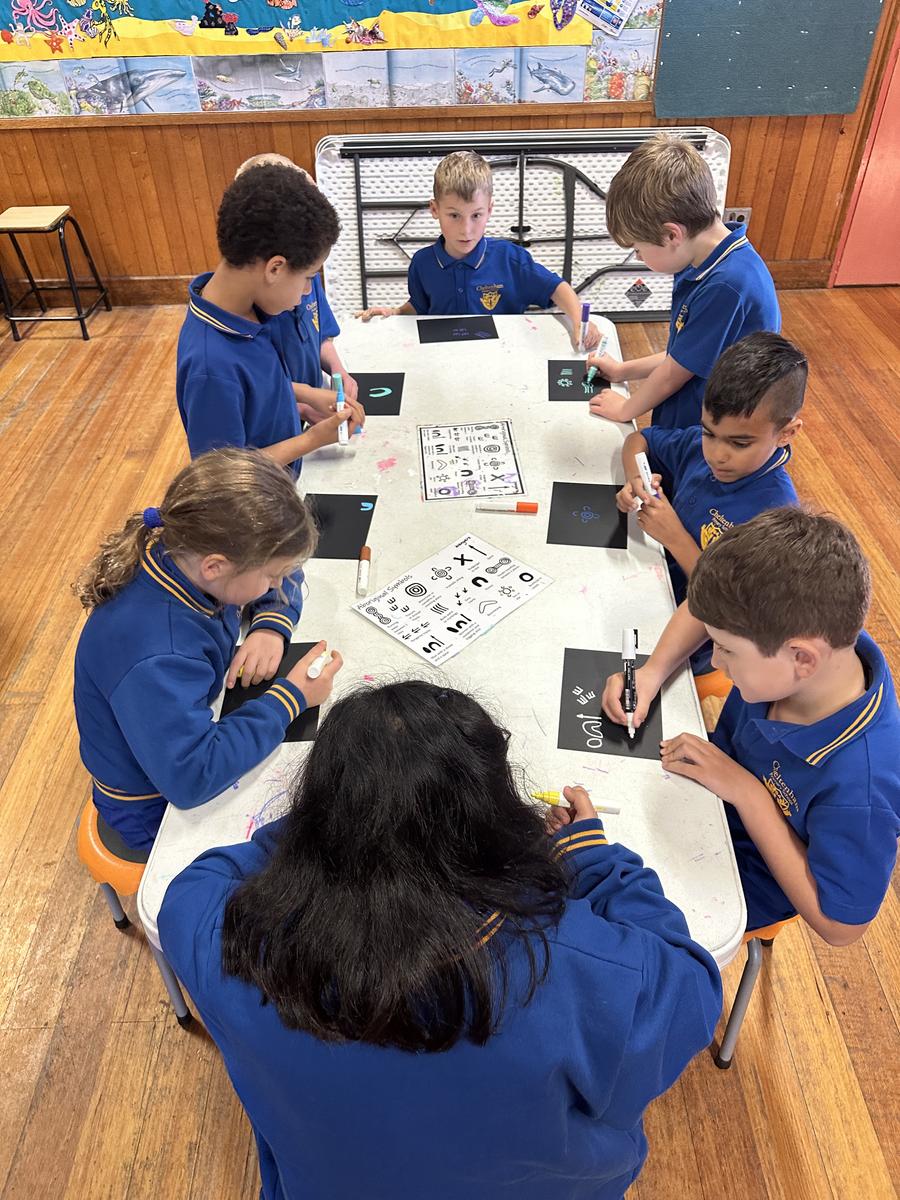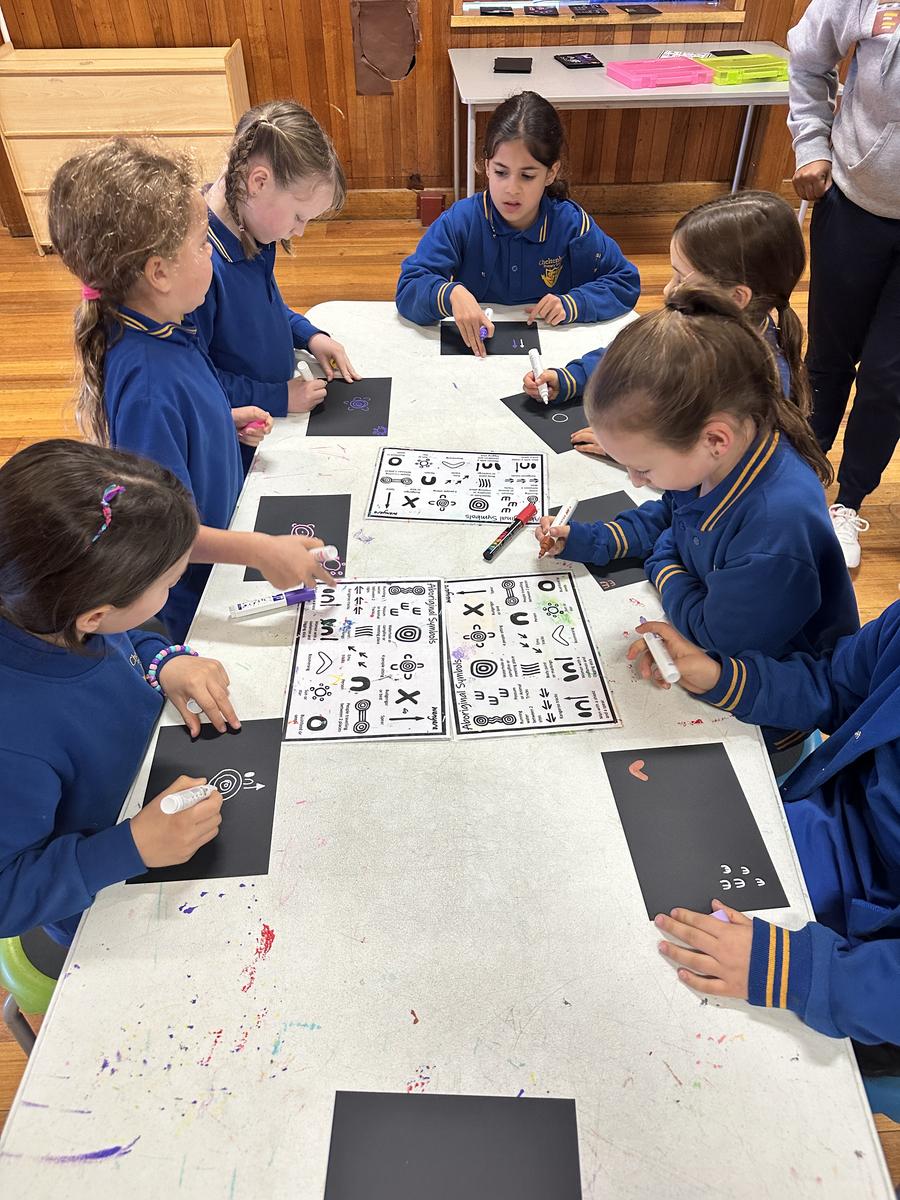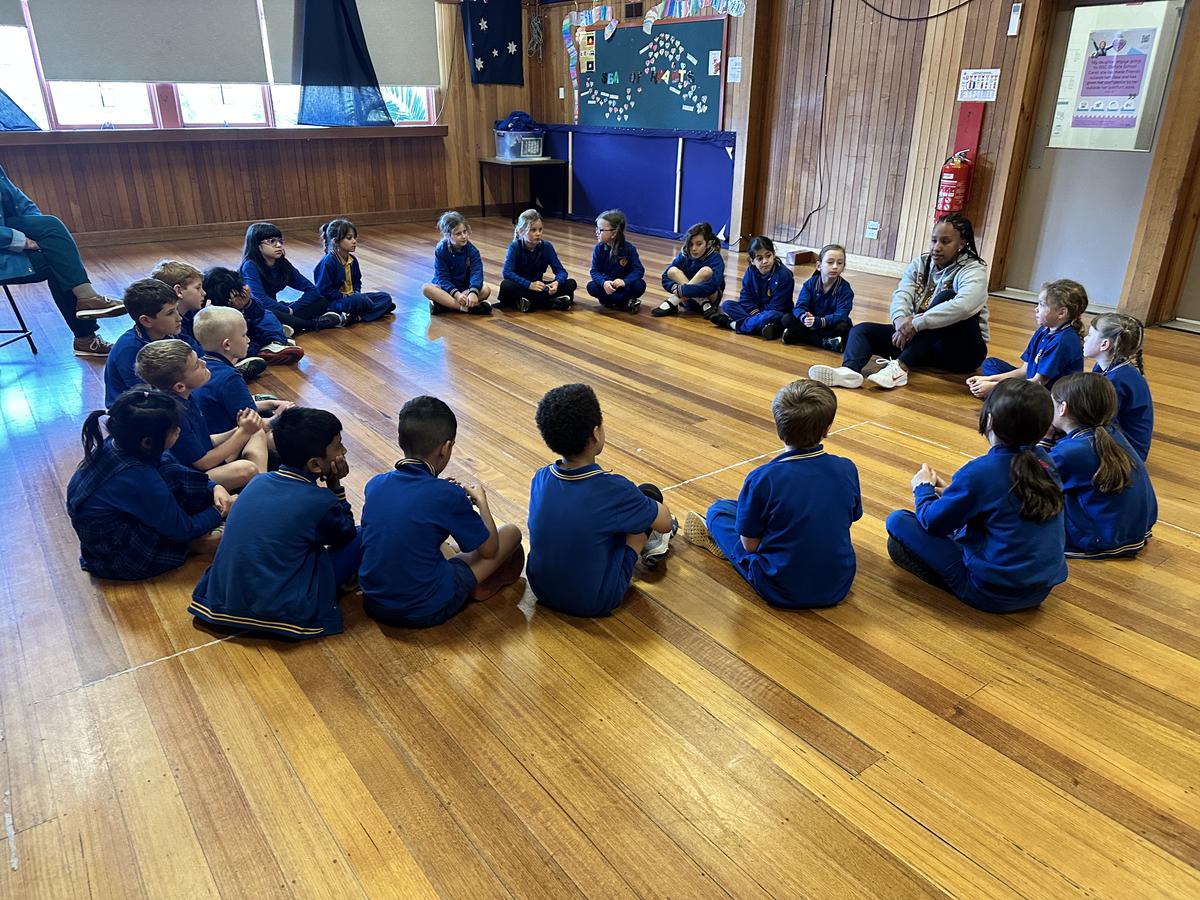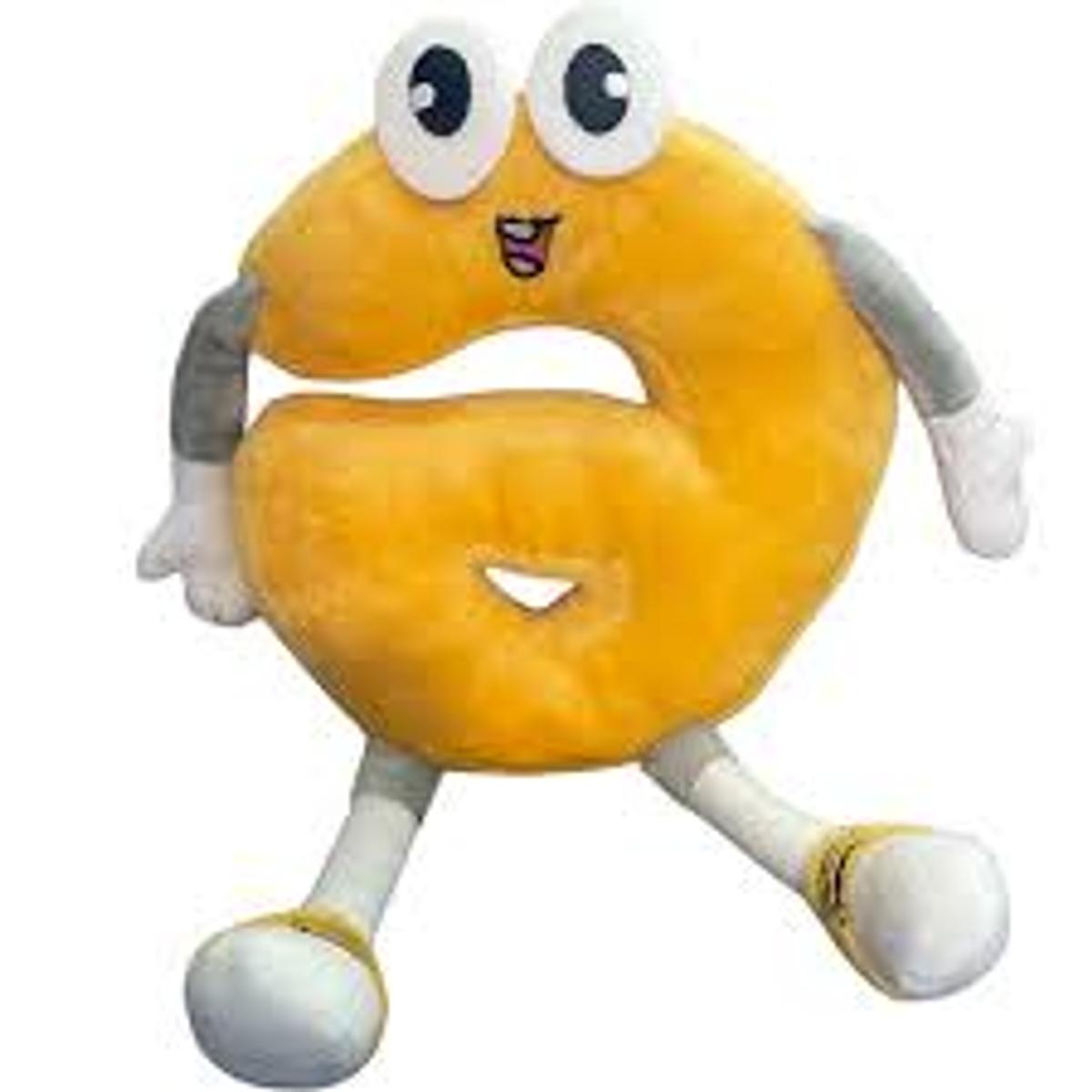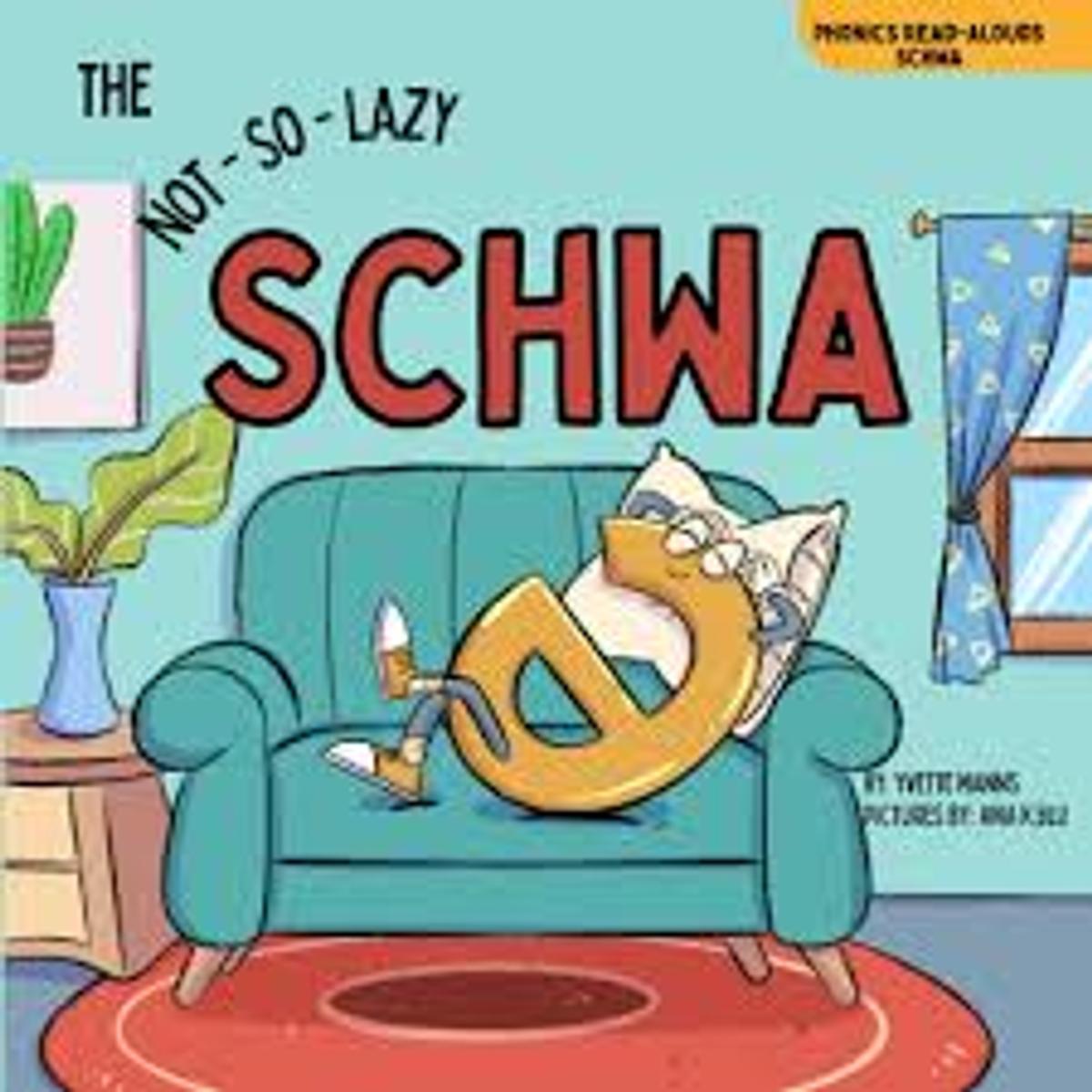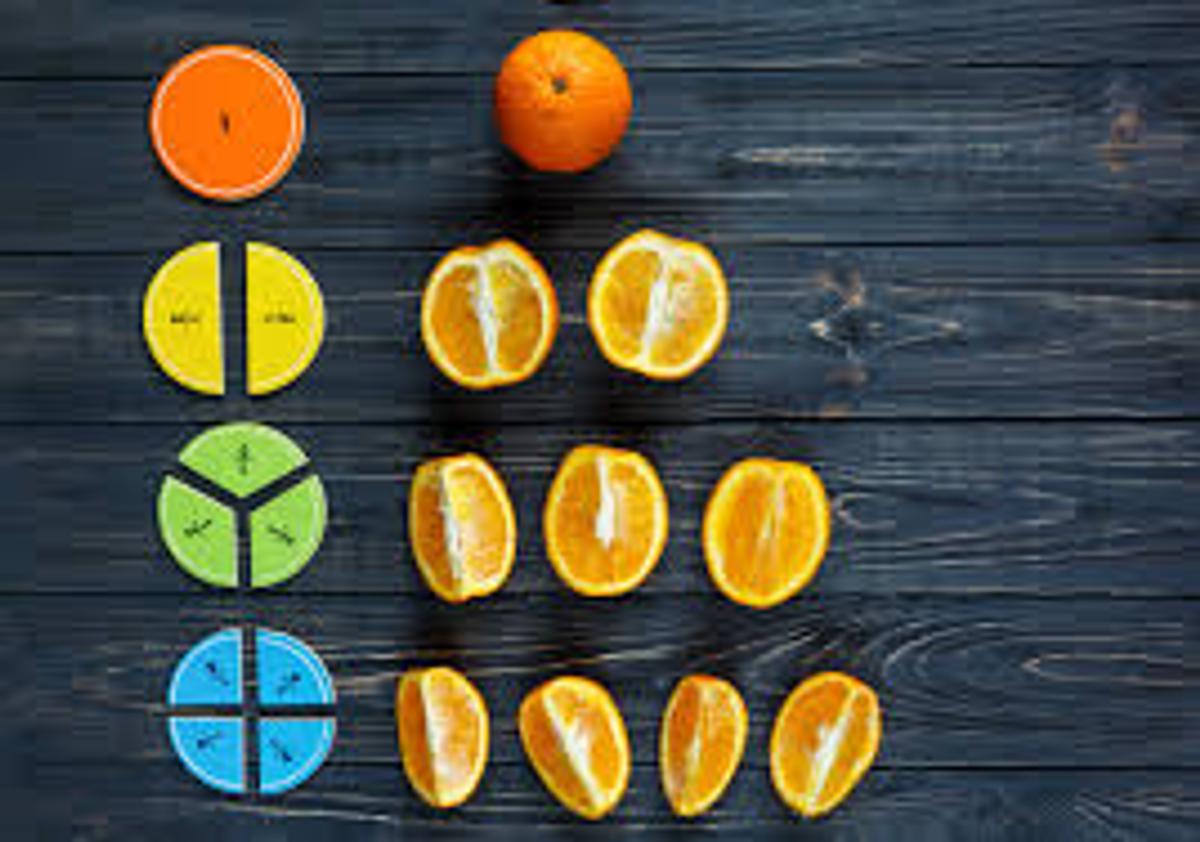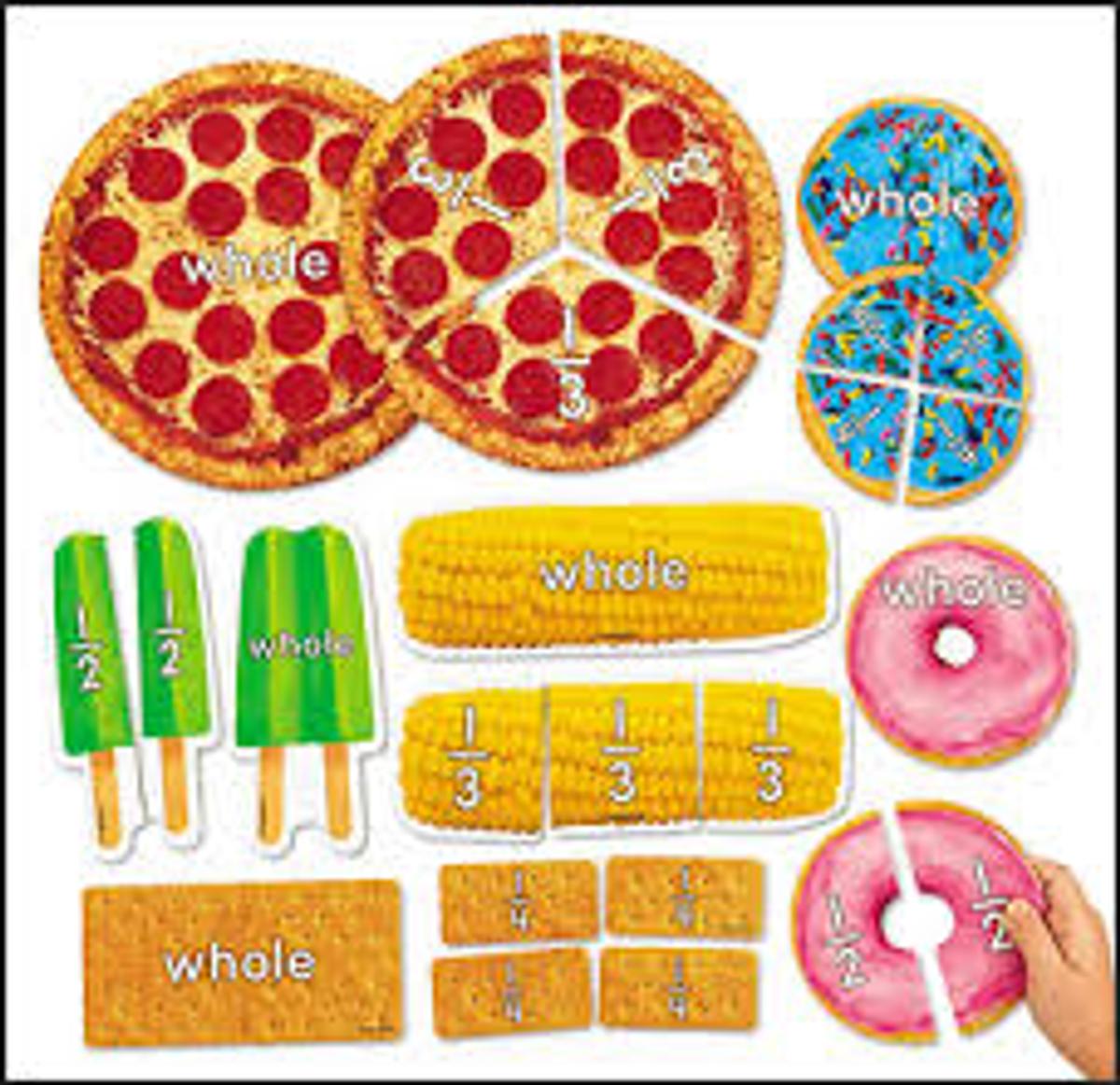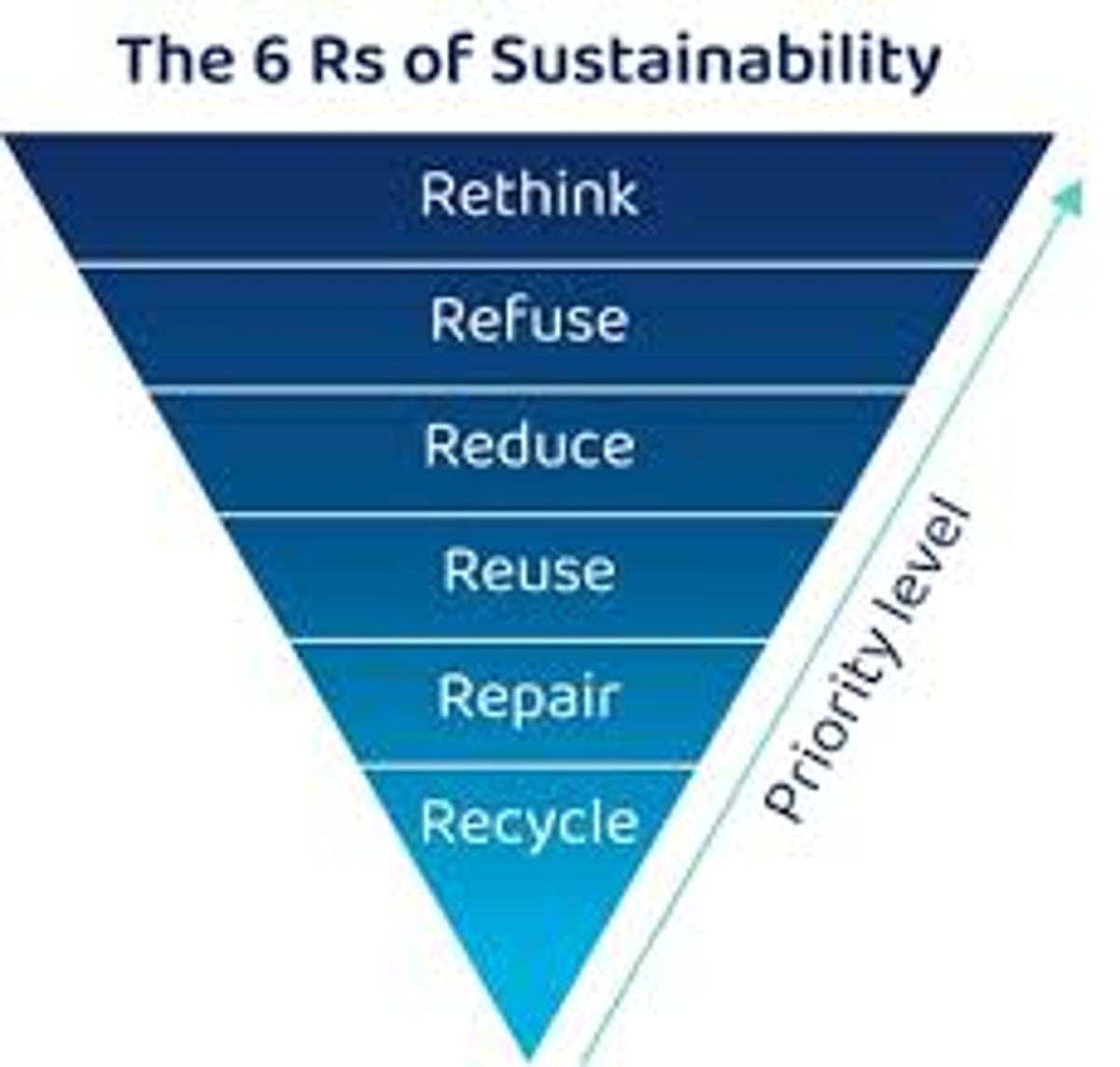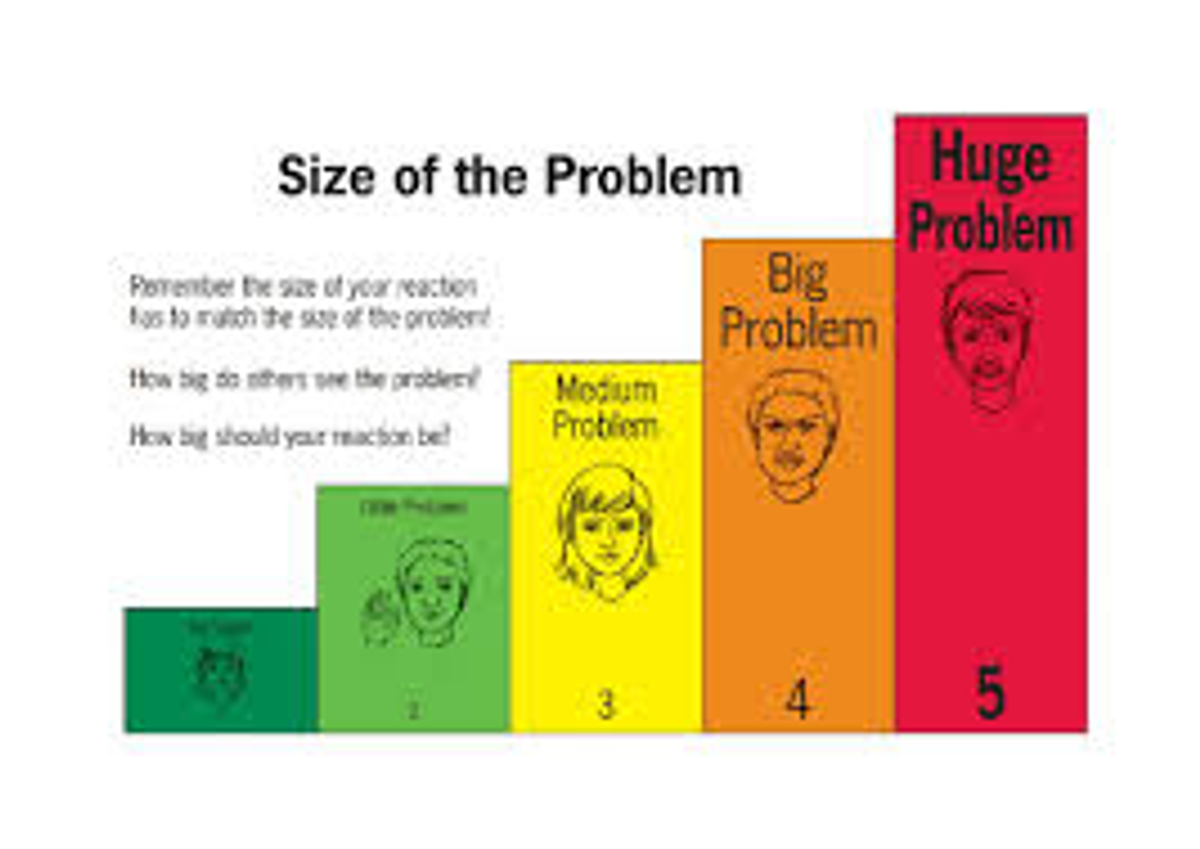Year 2
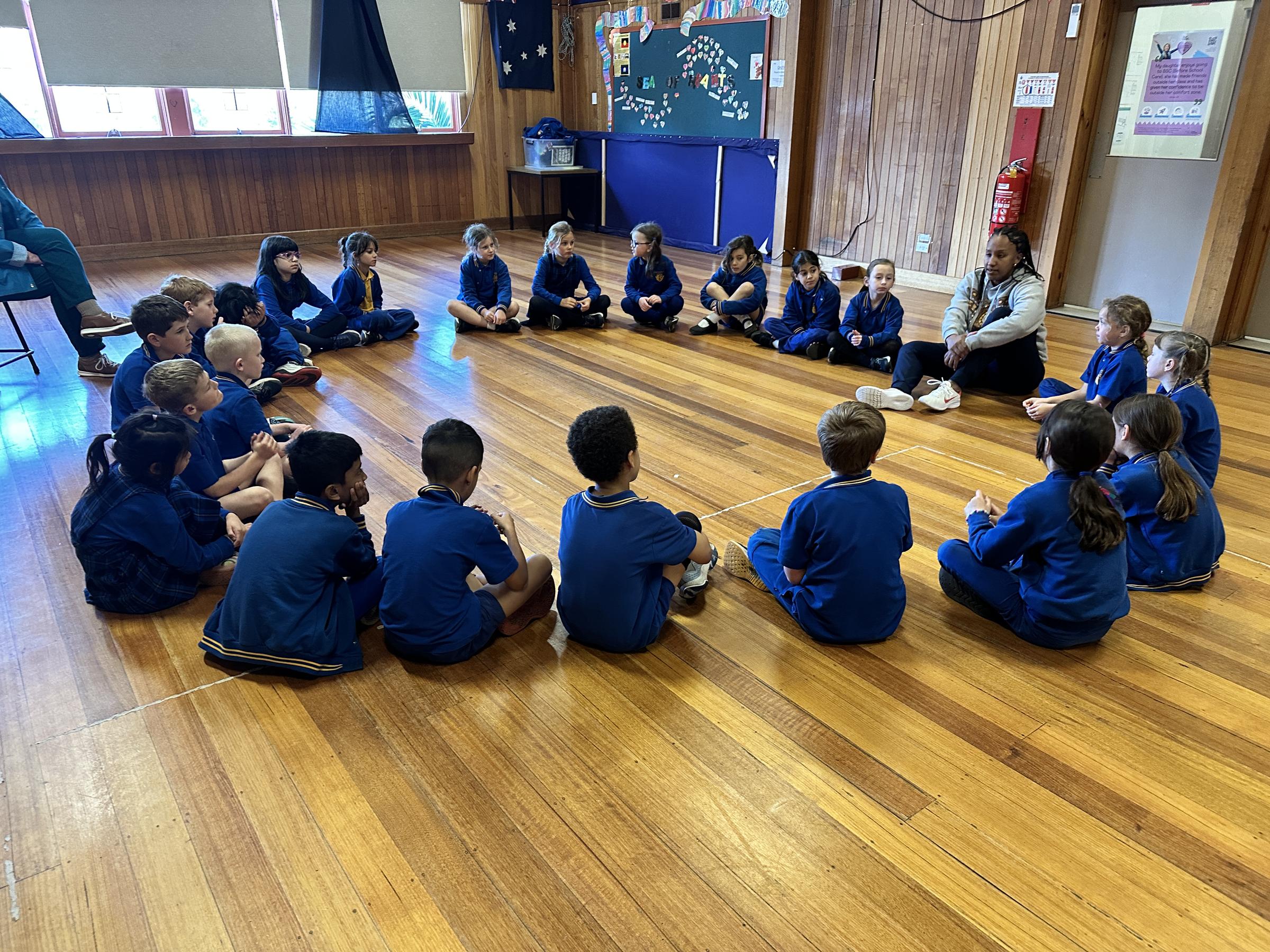
Term 3 Highlights
Term 3 was a busy one! In just nine short weeks, we managed to squeeze in a wide variety of learning experiences, both in and out of the classroom.
In Literacy, we delved into poetry through the text Bin Chicken, discussed “Why do we tell stories?” and explored Indigenous storytelling through symbols and narratives.
Students also enjoyed reading and retelling fairytales before creating their own fractured versions by changing key elements in traditional tales.
Book Week was another highlight, where we celebrated a love of reading across our school. In Mathematics, we focused on building efficient multiplication strategies by exploring grouping to calculate. We used arrays, repeated addition, and began working with the multiplication symbol. Students also investigated the features of 2D shapes, explored mass, and began a location unit using our BeeBots.
We finished the term with intensive swimming lessons, where students developed their confidence and independence in the pool.
We are excited for all that Term 4 will bring!
Term 4 Overview
In English this term, students will be exploring a variety of text types and language skills. We will begin by writing persuasive texts, learning how to share opinions and give reasons to convince others. Students will also continue to develop their creativity through narrative writing, focusing on creating characters, settings, and exciting storylines.
Alongside our writing, students will be working on a Grammar Project, applying their understanding of sentence structure, punctuation, and word choices in meaningful ways.
In MSL, we will be exploring some of the less frequent spelling patterns to extend students’ knowledge and confidence. Our focus will include silent letters such as wr and mb, as well as words with consonant-le endings (e.g. cuddle and humble).
We will also spend time learning about the schwa sound. The schwa is the most common sound in the English language, even though most people have never heard of it! It is a weak “uh” sound that can be spelled using any vowel. You’ll often hear it at the beginning of words (like the a in about) or at the end of words (like the er in teacher or the or in doctor).
Fun fact: over half of the vowels we say in everyday speech are actually the schwa sound! That’s why it can be one of the trickiest to learn, because it doesn’t match how the word looks when spelled. For example: banana has two schwa sounds that take the place of the sound of short a. Say it out loud: buh-na-nuh. Did you hear it?
This term in Mathematics, we will continue to build on our knowledge of multiplication and begin to explore the concept of division, using practical activities to show how numbers can be shared equally.Throughout these topics, students will be encouraged to use their skills in problem solving, applying their number knowledge to real-life and open-ended challenges.
Students will also explore fractions, building on their understanding that a fraction represents a part of a whole. They will expand their knowledge of halves from Year 1 by investigating quarters and eighths of common shapes. Additionally, students will use concrete materials to represent halves, quarters, and eighths of a group of objects.
To deepen their understanding, students will be encouraged to look for fractions in their everyday lives, such as counting the number of slices in a whole pizza, having half an apple in their lunchbox, or noting that they leave home in a quarter of an hour. We will also identify the fractions used during our Kitchen Classroom sessions, further integrating these concepts into practical experiences.
We will also be looking closely at the features of 3D objects, learning how to recognise, describe, and classify them in the world around us. We will turn our focus to measurement, exploring capacity through hands-on tasks and comparing how much different containers can hold.
This term’s Inquiry/STEAM focus is on sustainability. We are exploring the theme of sustainability through the 6 R’s: Rethink, Refuse, Reduce, Reuse, Recycle, and Repair. Students will be encouraged to reflect on their daily choices and discover practical ways to care for our environment at school and at home.
As part of our learning, we are excited to visit CERES Community Garden for a Zero Waste workshop. This excursion will help students understand where our waste goes, how we can make better choices to avoid it, and ways to move towards a future with less rubbish.
Zones of Regulation and Respectful Relationships
This term, students will practise using the tools they've learned throughout the year to effectively regulate their emotions. These tools include sensory support, calming techniques, and thinking strategies. They will discover that they have control over their actions and that success comes from knowing when and how to apply these strategies. When recognising what zone they are in, students can use strategies to help them stay in control, like taking deep breaths or asking for a break. This also helps students take charge of their learning, make good choices in class and have positive interactions with their classmates.
Important dates
Wednesday 15th of October: CERES sustainability excursion
Tuesday 28th of October: School production dress rehearsal and performance
Monday 3rd of November: Student Free Day
Tuesday 4th of November: Melbourne Cup Day
Monday 24th of November: Professional Practice Day (Student Free)
Friday 19th of December: Last day of school, early dismissal 1:30pm
We are so proud of everything our students have achieved this term!
The Year 2, Team
Andrew Culvenor (2A), Kerrie Gentner (2B), Rebecca Taylor/Carly Toister (2C)
